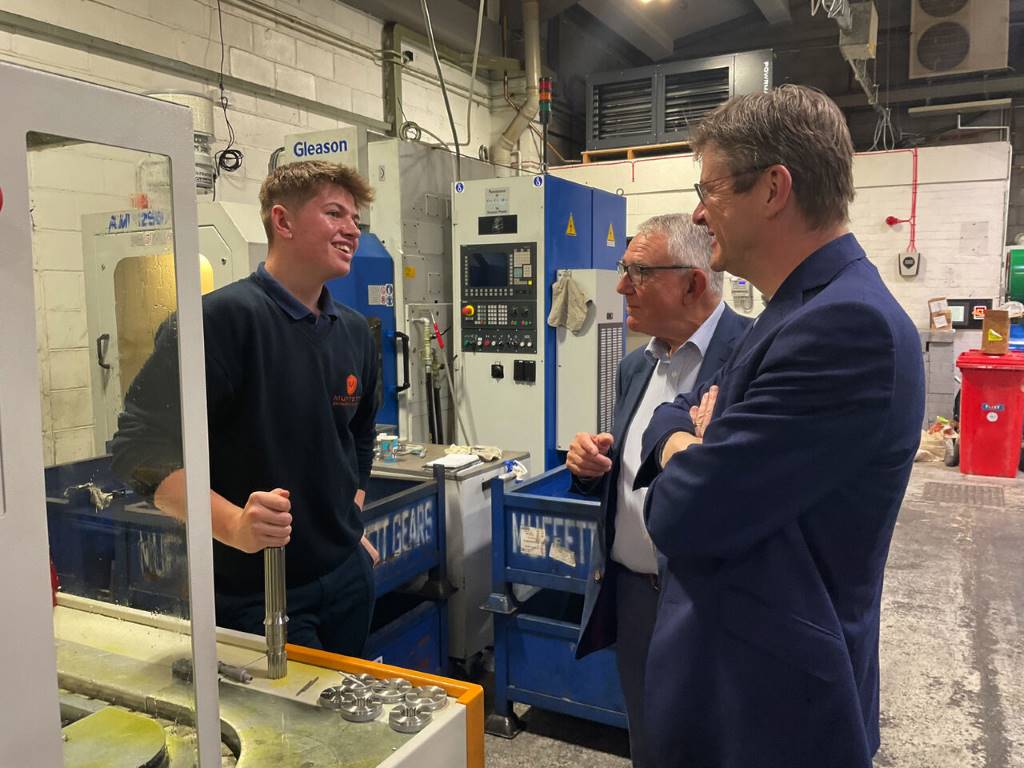Schoolteachers hold the key to skills shortage – says MTC expert

Britain's schoolteachers hold the key to solving the shortage of manufacturing and engineering skills in the UK, according to a leading manufacturing expert.
Ken Young, technology director of the pioneering Manufacturing Technology Centre in Coventry says that youngsters need to be encouraged to question how things work and how they are made at an early age if they are to be excited by a career in industry.
And his views have been echoed by teacher Jo Cox who has been on secondment to the MTC as part of an Institution of Mechanical Engineers Teacher Industrial Partner scheme aimed at developing partnerships between engineering employers and schools. She believes that education policy makers need to make room for youngsters to learn key skills, and schools and industry must work closely to encourage interest among younger pupils.
Mr Young fears that many youngsters grow up with a negative idea of engineering and manufacturing and so fail to consider it as a career: “By the time a youngster reaches the age of 16 it's too late; even 14 is too late,” he states. “Pupils need to be enthused about industry and engineering as early as possible. It is up to teachers at our primary and secondary schools to encourage curiosity and help children question how things are made. We look to teachers to be ambassadors for manufacturing and engineering – and this means they themselves must be well informed.
“Youngsters often grow up with an image of factories and workshops being dirty, smelly places,” he continues. “The reality is that most modern factories are meticulously clean and look more like laboratories. It is an exciting and rewarding career which youngsters often overlook because of lack of information in schools. Some schools are very good at this and make time to let pupils experience industry whilst others are curriculum focused and don't seem to give their students an opportunity to make informed career choices.”
Ms Cox, head of science and senior leader for STEM subjects at Redmoor Academy, Hinckley says teachers, as educators, are best placed to enthuse students about future career opportunities by providing extracurricular activities such as engineering clubs and industry visits. But she warns that often their hands are tied by the requirements of the curriculum and the need to achieve exam success.
“We can ensure that our students leave us well-informed, experienced in engineering and enthusiastic, but that does not make us a successful school,” she explains. “The curriculum content does not fully address the key skills required by industry and until education policymakers recognise the efforts being made by teachers to support the requirements of industry it is unlikely there will be sufficient change in attitude.”
She adds: “The key to success is starting young and whilst some industry sectors are getting involved and are providing opportunities for younger pupils, some companies will refuse visits from Key Stage 3 pupils due to their age and are only interested in talking to post 16 year old students. If the responsibility for change lies with schoolteachers it ought to be recognised that certain industries need to rethink their educational policies too.”
Jo Cox spent a two-week placement at the MTC as part of an IMechE initiative aimed at helping teachers understand how science, technology and mathematics are applied in industry. Teachers are supported by professional development sessions run by the National Science Learning Centre.
The Manufacturing Technology Centre, based on Ansty Park, Coventry, opened in 2011. It is a partnership between some of the UK's major global manufacturers and three forward thinking universities: Birmingham, Nottingham and Loughborough as well as TWI, the operating division of The Welding Institute.
MTC
www.the-mtc.org











